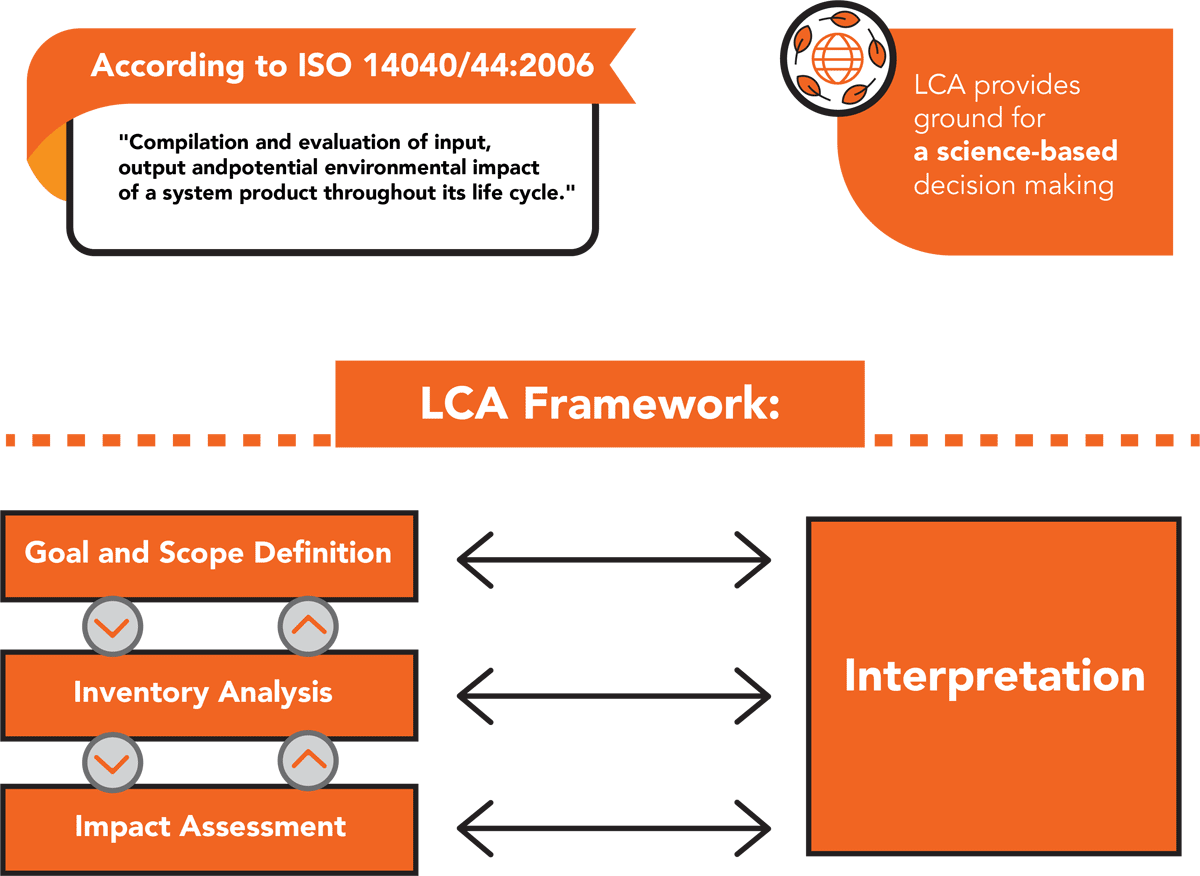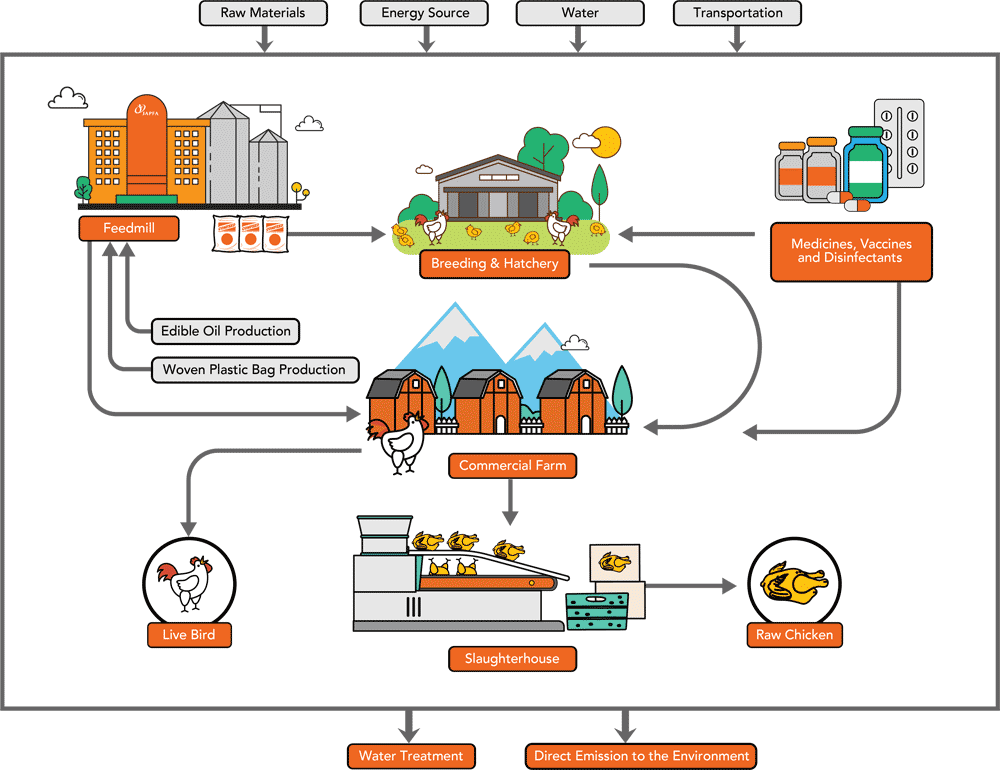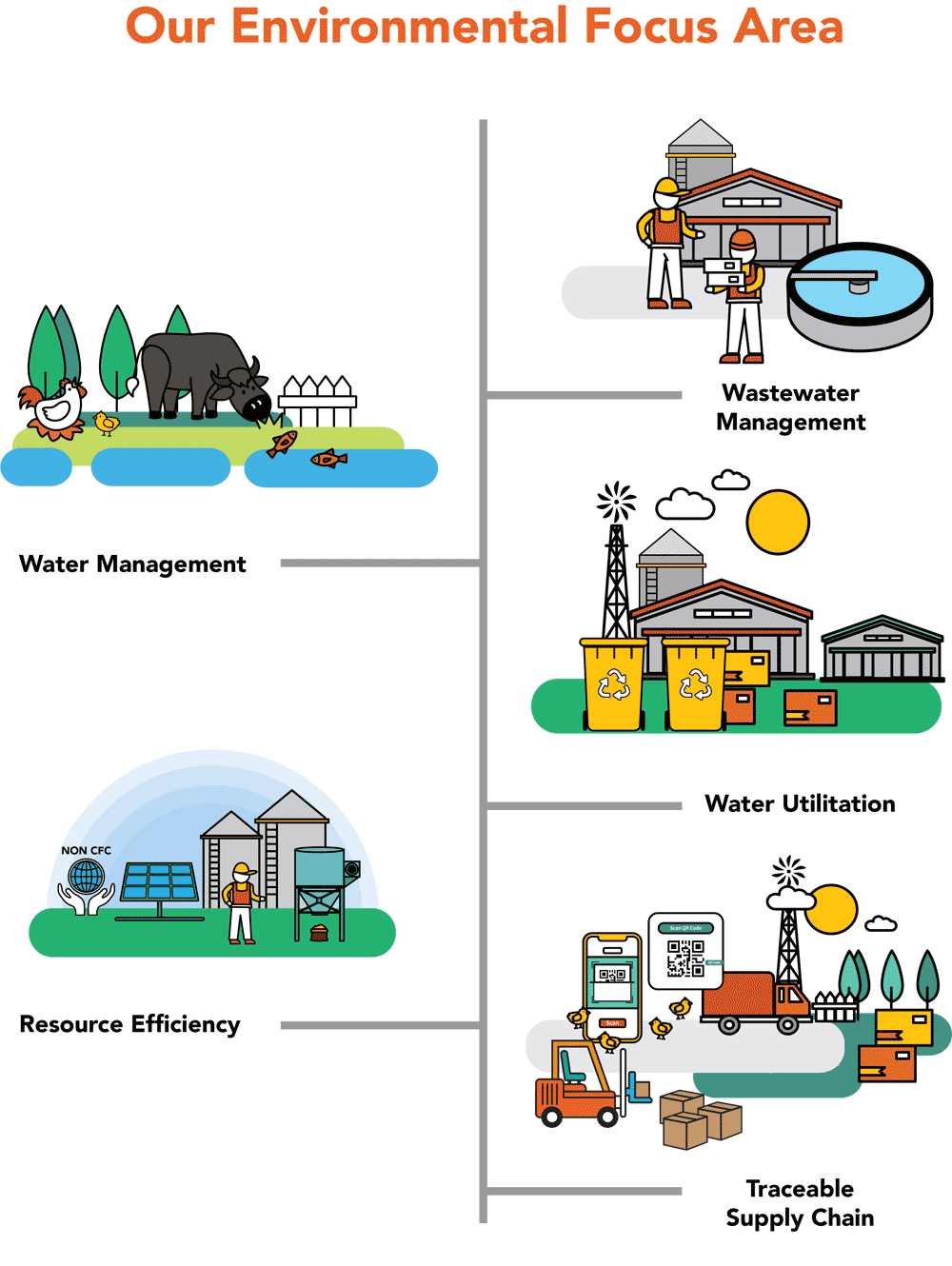Life Cycle Assessment
Environmental Life Cycle Assessment
The completion of a Life Cycle Assessment (“LCA”) of our Indonesian poultry operations is one of the most significant milestones in our sustainability journey as it complements our decision-making process with science-based information.
LCA is a robust methodology based on ISO 14040/44:2006 to quantify the inputs and outputs of a production system and the potential environmental impacts throughout its life cycle. We conducted an LCA to understand the impact of our products and operations on the environment and improve our processes.

In terms of proteins, poultry is our single biggest contributor to Group revenue. As a result, our first LCA was commissioned in 2019 for our poultry operations in Indonesia.
A Life Cycle Assessment to understand the environmental impact of our products and processes
JAPFA was the first vertically integrated poultry producer in Indonesia to formally conduct an environmental LCA by engaging an independent expert to measure the potential impact of our products throughout the supply chain.
The LCA encompassed the entire vertically integrated chain, from the production of feed to the end product, whether it is a live bird or raw chicken carcass. The quantitative analysis within the cradle-to-gate boundaries included raw materials, energy, transportation, packaging, waste and emissions, which then determined the impact values of our production system.

Focus Areas identified through the Environmental LCA
The LCA identified environmental hotspots within the production lifecycle, in particular: water and wastewater management, waste utilisation, resource efficiency and traceable supply chain. Based on the LCA, we prioritise our sustainability efforts in these areas.

